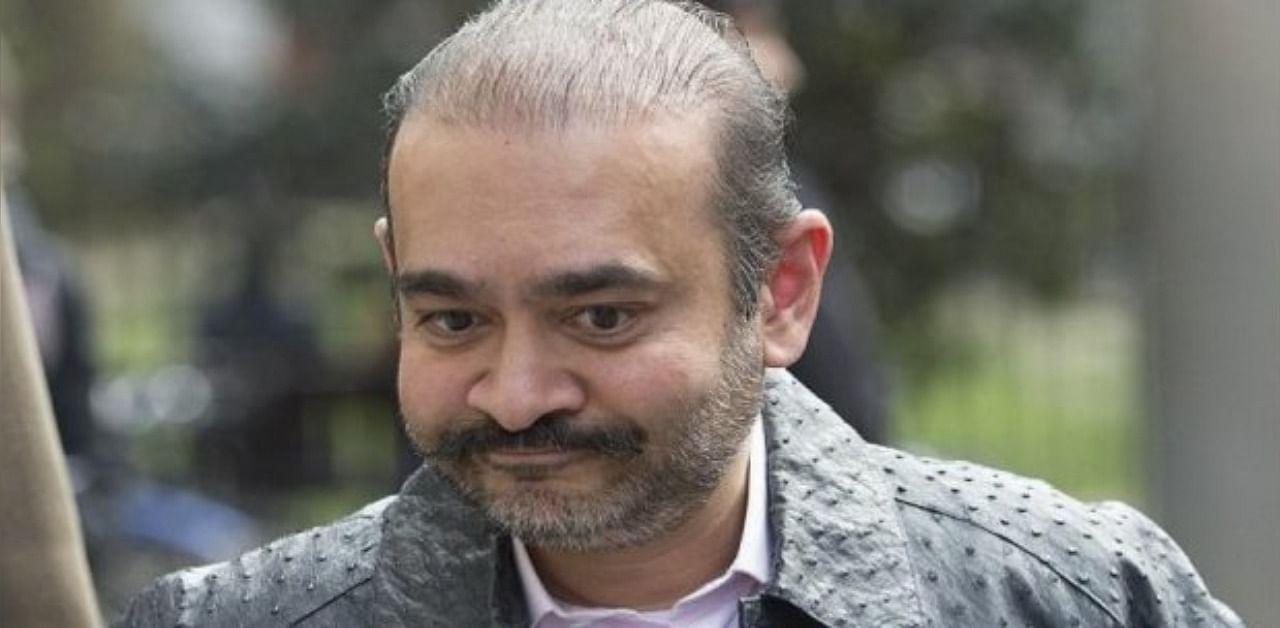
Wanted diamond merchant Nirav Modi on Tuesday renewed his appeal in the High Court in London against being extradited to India to face charges of fraud and money laundering in the estimated $2-billion Punjab National Bank (PNB) scam case.
The 50-year-old jeweller, who remains behind bars at Wandsworth Prison in south-west London, had lost the first stage of the High Court appeals process last week as a judge declined permission to appeal "on the papers".
Modi’s lawyers had five days to file a renewal application seeking an oral hearing to plead the case for permission to appeal against the extradition ordered by UK Home Secretary Priti Patel on April 16.
"A renewal hearing is listed for 21 July 2021," a court official confirmed on Tuesday.
At the brief hearing next month, a High Court judge will determine if there are any grounds for an appeal against the Home Secretary’s decision or the Westminster Magistrates Court February ruling in favour of Modi’s extradition to India for the case should proceed to a full hearing.
The Crown Prosecution Service (CPS), which appears in court on behalf of the Indian authorities, has previously said it is waiting for the next stages in the process.
"If they are allowed to appeal then we would contest any appeal proceedings on behalf of the GOI [government of India]," the CPS had said last month.
Meanwhile, Modi remains in prison since his arrest over two years ago on March 19, 2019 and his repeated attempts at bail were rejected as he is deemed a flight risk.
In his ruling in February, District Judge Sam Goozee concluded that the diamond merchant has a case to answer before the Indian courts and that the bars to extradition under UK law do not apply in his case. As part of a very comprehensive judgment, the judge concluded that he was satisfied that there is evidence upon which Nirav Modi could be convicted in relation to the conspiracy to defraud the PNB.
"A prima facie case is established," he said, in relation to all counts of charges brought by the Central Bureau of Investigation (CBI) and Enforcement Directorate (ED) – including money laundering, intimidation of witnesses and disappearance of evidence.
The court had also accepted that while Modi's mental health had deteriorated due to the lengthy incarceration in a London prison, exacerbated by the Covid-19 pandemic, his risk of suicide did not meet the high threshold to conclude that it would be "unjust or oppressive" to extradite him.
Under assurances given by the Indian authorities in court, Modi is to be held at Barrack 12 Arthur Road Jail in Mumbai and provided required medical attention on being extradited to face trial in India.
Modi is the subject of two sets of criminal proceedings, with the CBI case relating to a large-scale fraud upon PNB through the fraudulent obtaining of letters of undertaking (LoUs) or loan agreements, and the ED case relating to the laundering of the proceeds of that fraud.
He also faces two additional charges of "causing the disappearance of evidence" and intimidating witnesses or “criminal intimidation to cause death”, which were added on to the CBI case.
"I do not accept the submissions that NDM [Nirav Deepak Modi] was involved in legitimate business and using the LoUs in a permissible fashion,” notes the magistrates’ court judgment forwarded to the Home Secretary.
India is a designated Part 2 country by virtue of the Extradition Act 2003, which means it is the Cabinet minister who has the authority to order a requested person’s extradition after considering all issues. The Home Secretary’s order rarely goes against the court’s conclusions, as she has to consider only very narrow bars to extradition, which do not apply in Modi's case.
The case will now go through the next stage of the High Court appeals process, with Modi’s lawyers set to argue in favour of a full appeal hearing against the extradition order.